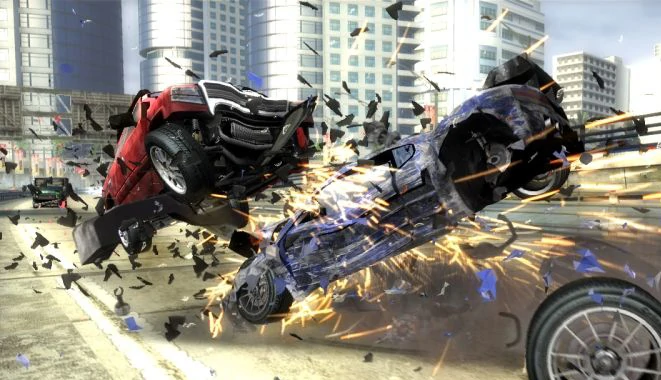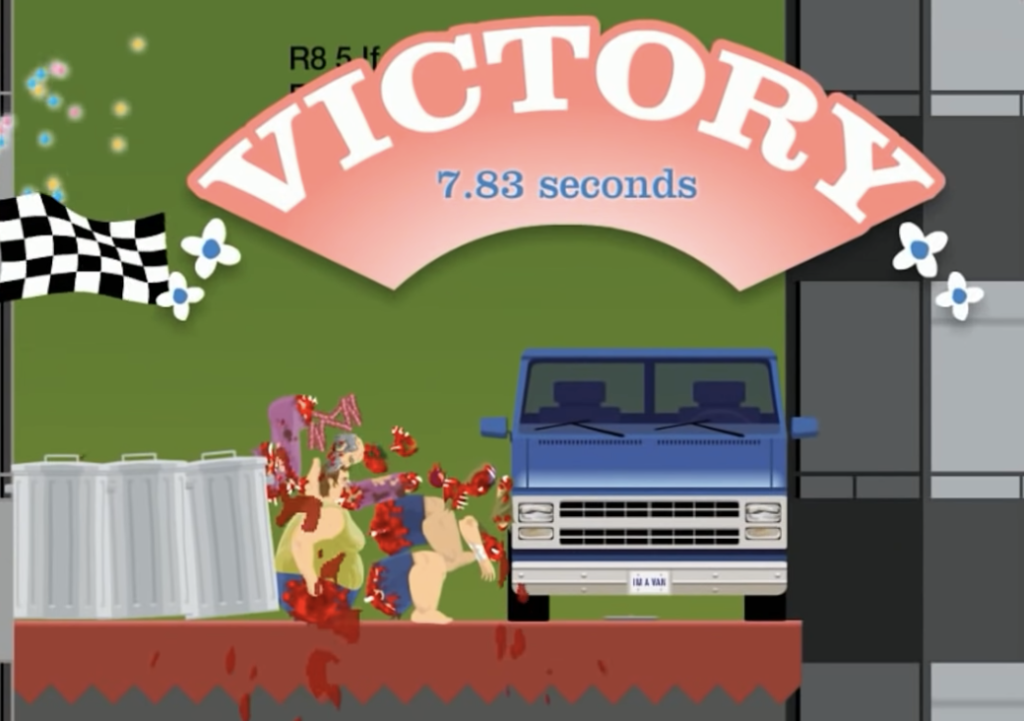In The Queer Art of Failing at Video Games by Bonnie Ruberg, there is a short section on Burnout Revenge that I found particularly interesting, especially when applying its logic to Happy Wheels.
Burnout Revenge is a series of racing games where a key aspect is marveling in watching the car fly into the air, flip around, and erupt into a cinematic “show of sparks and metal” (149)—that is, the aim of the game, in some game modes, is actually to crash the car, rather than avoid it. “Failing” at the game means to keep the car intact and drive around like any other racing game. Ruberg reads the game from a masochistic lens, noting that watching the self-destruction “feels notably good” (150). And while the game does not have explicit themes of sexuality, the subversion of traditional understandings of success versus failure in the game serves as a stand against dominant logics surrounding agency and subjectivity, and this is how the LGBTQ experience becomes relevant.

Such subversion is a form of resistance—and indeed, queer history and the history of masochistic kink subcultures are closely related. Even today, there is a taboo around discussing sex and sexuality, even more so for queer individuals. Many kink and BDSM subcultures were formed in resistance to heteronormative expectations of how people should love and form relationships. (Cameron Glover, “It’s Time to Recenter Kink and BDSM as a Part of Radical Queer History”)
This discussion of going against convention when it comes to what is considered pleasurable in a game made me think about the game Happy Wheels, which too has moments of self-destruction that are largely part of what makes the game so pleasurable. There is an element of mechanical difficulty to the game, with its need for precision and hard-to-control character movements, which certainly contributes to the popularity of the game. But also, I think that just like Burnout Revenge, it subverts traditional ideas of success and failure, through its comedic presentation and normalization of its in-game violence. Honestly, the game is arguably more violent that Burnout Revenge, with explicit blood, dismemberment, and cries of pain. While the objective of the game isn’t specifically to mangle the bodies as much as possible, in many levels, it is pretty much impossible to win without losing an arm or leg or two.

For many players, the destruction to these on-screen bodies is pleasurable—it is comical, over-dramatic, and frankly, unrealistic. I also think that there is a sort of catharsis to it. So even in victory, self-destruction, horrific dismemberment and bodily trauma, is normalized. In other games, maintaining the health of the character the player controls, or avoiding collateral damage to surroundings and NPC’s, is an important part of the strategy in the game. But in Happy Wheels, this concern seems a little de-emphasized. Being damaged to that extent in any other game might constitute an in-game death—a failed run. Here, it’s VICTORY.
Thus, queerness is brought to the game. Rather than normative pleasures of avoiding damage to the on-screen characters, there is masochistic and sadistic pleasures in destruction. And of course, not everyone finds the game fun. But a lot of people do, and it “reconfigures dominant notions of why players play and what pleasures they take from games” (156). There is queer resistance imbedded in the soul of the game, an empowering existence and an example of how games which are often dismissed as “childish” or “unnecessarily violent” can serve important roles in deconstructing reductive and harmful notions of what people “should” or “can” find pleasurable.
